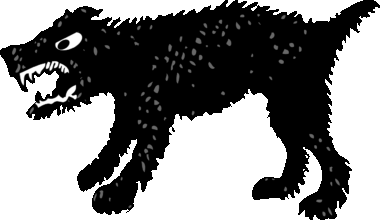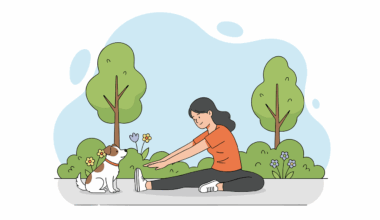Dental Care for Senior Dogs: What You Need to Know
As our beloved canine companions age, their dental health often becomes a concern. Senior dogs are prone to various dental issues such as periodontal disease and tooth loss. Regular oral examinations and proper dental care are crucial. Neglecting their dental hygiene can lead to serious health complications. One effective way to monitor your dog’s dental health is through routine veterinary check-ups. Finding specific workshops in your area could greatly enhance your knowledge of proper dental care techniques. Workshops often include demonstrations and hands-on practice. Furthermore, it is essential to combine professional cleanings with daily dental care at home. You can assist your dog at home through activities tailored to support their dental health. Consider incorporating dental treats and toys designed to reduce plaque buildup. Additionally, brushing your dog’s teeth can significantly help in maintaining their oral hygiene. The goal should be to make dental care a fun and routine part of their lives. Overall, understanding and implementing consistent dental care can ensure your senior dog remains happy and healthy for years to come.
Another aspect to consider is the diet of senior dogs, as it also plays a significant role in their dental health. A well-balanced diet can contribute to stronger teeth and healthier gums. Some dog foods include specific ingredients that reduce tartar buildup, making them advantageous. Consulting your veterinarian about the best diet for your older pup is wise. Adding crunchy kibble or dental-specific diets can promote chewing, which naturally helps clean the teeth. Furthermore, they may recommend supplements or additives for your dog’s meals that support dental health. To enhance your awareness, consider attending seminars that focus on pet nutrition and dental care. These events often provide insights into the latest products that are beneficial for older dogs. Also, keep an eye out for educational materials that cover key nutrition topics. Educated dog owners can make informed choices that directly impact their dogs’ oral health. Always remember to read labels and seek advice from professionals. Healthy gums and teeth ensure your dog can enjoy their food and remain active, contributing to their overall well-being.
Understanding Dental Problems in Senior Dogs
Understanding the common dental problems that affect senior dogs is essential for any pet owner. As dogs age, their oral cavity experiences wear and tear like any other body part. Common dental issues include plaque and tartar buildup leading to gum disease. Periodontal disease, often unnoticed in its early stages, can lead to pain and infections. If not treated, these issues can affect your dog’s overall health, including their heart and kidneys. Regular check-ups allow for early detection and intervention, which can make all the difference. Dog owners should be vigilant and observe any changes in their dog’s behavior, such as difficulty eating or bad breath. Bad breath often indicates underlying oral health problems deserving attention. Implementing a good dental hygiene routine can prevent these issues before they develop further. Learning about the specific risks and signs of dental disease in senior dogs will empower you as an owner. By taking proactive steps, you can greatly improve your dog’s comfort and quality of life as they age.
There are numerous methods to maintain your senior dog’s dental hygiene at home. One popular method is using special dog toothpaste along with a soft toothbrush designed for pets. This combination helps remove plaque and prevents future buildup without damaging your dog’s gums. Establishing a regular brushing routine is vital; however, it may take time for your dog to accept the process, so patience is key. Additionally, consider incorporating dental chews and treats that are approved by veterinary dental experts. These products are designed to reduce plaque and provide an enjoyable chewing experience for your dog. You could also opt for water additives that help fight plaque and freshen your dog’s breath on a daily basis. It’s crucial to familiarize yourself with the right products to ensure they are safe and effective. Furthermore, engaging your veterinarian for recommendations can help you narrow down the best dental care options available for your senior pet. Creating a dental care routine that your dog enjoys not only contributes to their health but also strengthens the bond you share.
Signs That Indicate Dental Issues
Recognizing the signs of dental problems in your senior dog can help you respond effectively and promptly. Watch out for symptoms such as excessive drooling, difficulty chewing, or loss of appetite. Bad breath or halitosis is another significant warning sign of dental distress. You may also notice swollen or bleeding gums while closely inspecting your dog’s mouth. Changes in behavior, such as increased irritability or reluctance to play, can indicate discomfort related to dental issues. Additionally, if your dog is constantly pawing at their mouth, seeking help from a skilled veterinarian is crucial. If these symptoms persist, they could escalate into more severe health concerns. Observing your dog closely and seeking timely veterinary advice is essential. Knowing when to act can save your dog’s teeth and overall health. Regular at-home dental assessments can also enhance awareness of your dog’s oral condition, making early intervention easier. Don’t hesitate to participate in community workshops discussing pet health and wellness. Your dog deserves a healthy and pain-free life, and proactive steps go a long way.
It’s important to maintain consistent dental care throughout your dog’s life, but particularly during their senior years. Transitioning to a specialized dental care routine may include more frequent vet visits tailored for older dogs. Some may require professional cleanings every six months, depending on the condition of their teeth. Ensuring that your vet checks for cavities and other dental issues can prevent future pain for your beloved pet. Developing a dental care plan that suits your dog’s unique needs is vital, as every dog is different. Also, don’t overlook the importance of education; learning more about senior dog care can empower you to provide better support. Invest time in seminars and workshops that focus on dental and overall health care for older dogs. These resources often share valuable information and produce knowledgeable dog owners. Connecting with other pet parents can also enhance your understanding of the challenges associated with senior dog care. Overall, consistent dental care can greatly improve not just the dental health of senior dogs but their overall quality of life and longevity.
Conclusion: Caring for Your Senior Dog
In conclusion, taking a proactive approach to dental care for your senior dog is paramount. Recognizing the unique challenges that older dogs face regarding their oral hygiene can make a significant difference in their quality of life. Integrating professional care with consistent at-home dental hygiene practices is essential for maintaining their health. Engaging in discussions at seminars or workshops can provide new insights and support your efforts. Furthermore, understanding the appropriate diet, preventative measures, and recognizing warning signs enables you to navigate the complexities of senior dog care smoothly. Establishing a supportive routine not only minimizes health risks but also enhances your dog’s happiness. Consider the importance of making dental care an enjoyable process for both you and your pet to encourage compliance. A happier dog leads to a more satisfying companionship experience for you both. Remember, each step you take for your dog’s dental health contributes to their overall well-being. Your efforts as a devoted pet parent will ensure years of joyful memories with your senior dog, emphasizing the importance of lifelong care.
With commitment and dedication to their dental health, you will find that providing a suitable and loving environment enhances their golden years. Ensure that your beloved companion enjoys each day safely and comfortably, and that their health and happiness remain paramount priorities as they continue to age gracefully.


